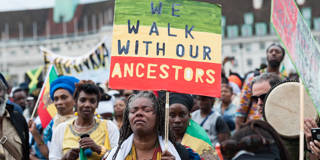As Western countries and institutions come to terms with their colonial histories, they must do more than issue apologies and toothless statements. To create a more equitable society requires addressing colonialism’s present-day effects on marginalized communities.
BERLIN – At long last, European countries have begun to grapple with their colonial legacies. In the Netherlands, the government has issued an apology for the country’s role in the global slave trade, and the king has “asked for forgiveness.” The United Nations Special Rapporteur on the Rights of Indigenous Peoples has urged Denmark to “address the negative impacts” of its colonization of Greenland. And in the United Kingdom, media outlets, the Church of England, and cities like Manchester have acknowledged the hard truth: their wealth and power were built on the backs of enslaved people.

BERLIN – At long last, European countries have begun to grapple with their colonial legacies. In the Netherlands, the government has issued an apology for the country’s role in the global slave trade, and the king has “asked for forgiveness.” The United Nations Special Rapporteur on the Rights of Indigenous Peoples has urged Denmark to “address the negative impacts” of its colonization of Greenland. And in the United Kingdom, media outlets, the Church of England, and cities like Manchester have acknowledged the hard truth: their wealth and power were built on the backs of enslaved people.